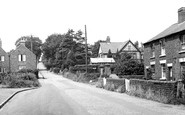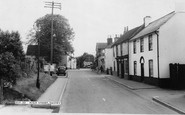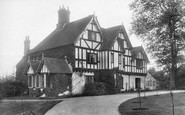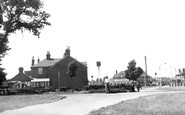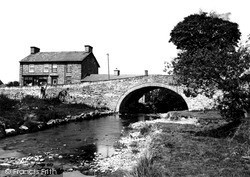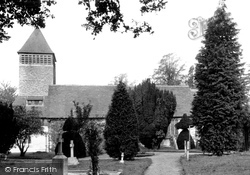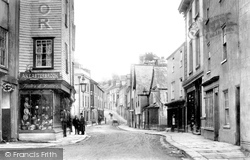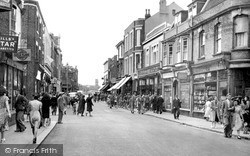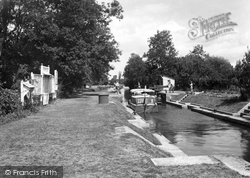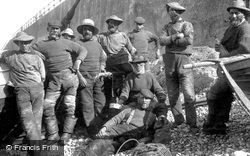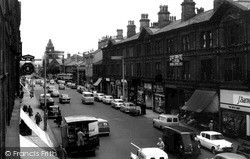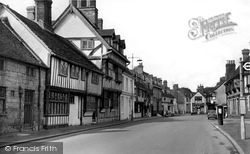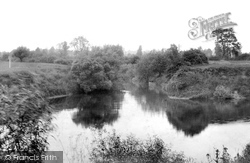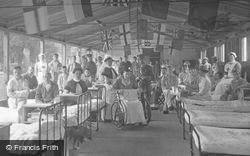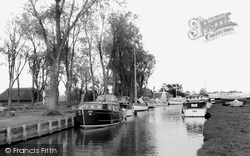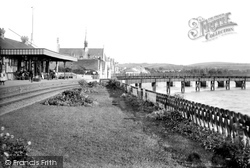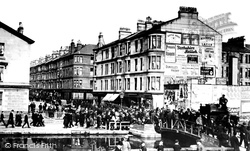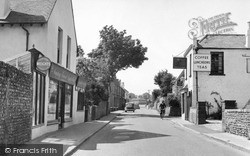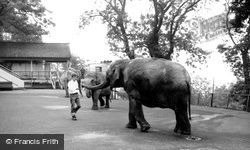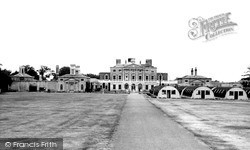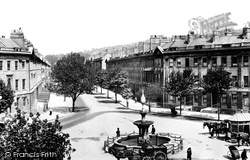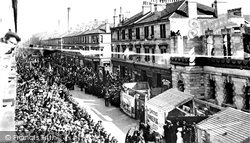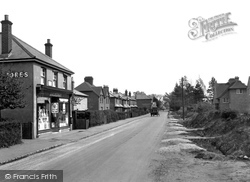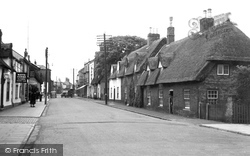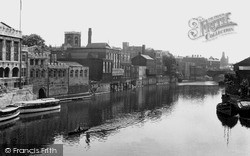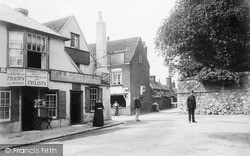Places
4 places found.
Those places high-lighted have photos. All locations may have maps, books and memories.
Photos
Sorry, no photos were found that related to your search.
Maps
11 maps found.
Books
Sorry, no books were found that related to your search.
Memories
227 memories found. Showing results 21 to 30.
Kennack
I have been coming to Kennack since I was a toddler. But 1972 was the first of many years that stand out to me. My family met another family and we are still in touch now, 36 years and more later. My memories are so many, borrowing ...Read more
A memory of Kennack Sands in 1972
Mossband Camp
My father was a serving soldier, serving at the RAOC camp until 1948. We lived in the YMCA building in the camp itself and it had a large functions hall attached where one of our officers once entertained the children at Christmas ...Read more
A memory of Mossband Ho in 1947 by
Farm At White Hill
My father Jenkin Evans and mother Valerie Evans lived at Potters Cross Farm, White Hill, Kinver from just before the Second World War. This is the farmhouse which you can see which still exists to this day. They raised four ...Read more
A memory of Kinver by
Thornley In My Youth
Further to my memories I spoke of before, I can remember games we used to play like split the kipper, tally ho, blonk, and a lot more. The summer months were great, we would go over the moors and spend all day over there, if ...Read more
A memory of Thornley by
Great Horton
Our family lived in Lidget Green, near the Great Horton railway station. I was born in 1949 near Bradford (Wakefield), and lived in Lidget Green from toddlerhood until we emigrated in 1960. The neighborhood provided many memories ...Read more
A memory of Bradford in 1959 by
Hemsby In The 70s And 80s
We started holidaying in Hemsby in the late 1970s. My parents loved it as we'd always had caravan holidays previously but now we had a chalet!! They always stayed at Belle Aire site. Hemsby was pretty spartan in those ...Read more
A memory of Hemsby by
Mixture
The quaint older houses on the right now faced new bungalows to our left, and on our left is another walkway to the primary school. Now Jimmy came to live in one of the bungalows and then he came to our school when he was about 10. He was ...Read more
A memory of Eastry by
Grandparents In Service
My paternal grandparents used to work in service at Wonham while my father was a young boy in the years before WW2. I believe my grandmother was a cook and my grandfather was a driver/handyman. I think my father ...Read more
A memory of South Godstone by
Nanny Goats Common
My friend used to live in one of the small cottages on Nannygoats Common. I think there was a scrap metal merchant who also lived in same row, I think his name was Tiny Wakefield. Today flats and more flats dominate this area, ...Read more
A memory of Dagenham in 1956
Living At Manor Farm
My family and I lived at Manor Farm from the early 1970s into the 1980s. My father worked on the White family farm and the farmhouse came with the job. Although I felt isolated at times, it was a magical place to grow up, ...Read more
A memory of Teversham in 1974 by
Captions
141 captions found. Showing results 49 to 72.
Pontrhydfendigaid means 'bridge of the blessed ford', and this is that bridge. By it is the village shop.
Visit the church at Yateley, and have a look at the glass in the 13th- century east window: it depicts Peter and John, and is the work of William Morris and the Pre-Raphaelite artist Sir Edward Burne-Jones
This whole area is now somewhat overgrown, making access difficult, and the remains are more ruinous.
In grander and more prosperous days Ashburton was one of the region's strategic stannary towns. Mining finally came to a halt in the 19th century.
There are more bicycles than cars in this 1950s view of Sheerness High Street.
For centuries the Thames has played a part in Benson's history.
Fishing was a rough and dangerous way to earn a living.
The Picture House on North Street was still doing excellent business, in spite of competition from the nearby and more modern Ritz cinema (1938).
The left- hand ground-floor window now matches its fellow, three dormers have replaced the original two, the end elevation has plasterwork instead of tile-hanging, a larger window and more
The River Teme rises in the Kerry Hills of Radnorshire and flows through 75 miles of beautiful countryside before it meets the River Severn just south of Worcester.
Cloche hats and knee-length skirts place this picture firmly in the roaring twenties.
As more and more injured men came back from the front, a larger hut hospital was built on the playing fields of King's and Clare Colleges, with 'open-air' wards such as this one housing the patients.
Motor cruisers were becoming larger and more numerous, almost crowding out the traditional sailing boats.
Quay Station was the original town-side stop for the Ilfracombe train.
In 1882, the American firm of Singers opened a sewing-machine factory, bringing yet more jobs and more people to the area. Clydebank became a burgh in 1886.
West Street was originally part of the main route through Sompting, linking it to Broadwater and North Lancing.
They may have a few trees to look at, but as far as the amenities of their home are concerned, these elephants do not fare any better than the gorilla.
This is the entrance front; the rows of Nissen huts and a water tank above the roofline are features of the former Nautical School, linked to HMS 'Ganges'.
In this view the trees are more mature and obscure the long facades of this eleven hundred foot long road.
The streets are packed with onlookers, and anxious officials wait by the entrance to the site of the new town hall.
J & K Deadman's stores (left) would probably have sold every kind of provision you could have imagined - and more.
In the foreground are cottages, some thatched, while in the distance are some more urban later houses of two and three full storeys.
By the time of this photograph, the river was being used more and more for pleasure: streamlined boats are moored by the bank, and a canoe with its lone occupant is heading towards Lendal Bridge.
St Osyth once had thriving lime-kilns and maltings, as well as wharves and a tide-mill.
Places (4)
Photos (0)
Memories (227)
Books (0)
Maps (11)

